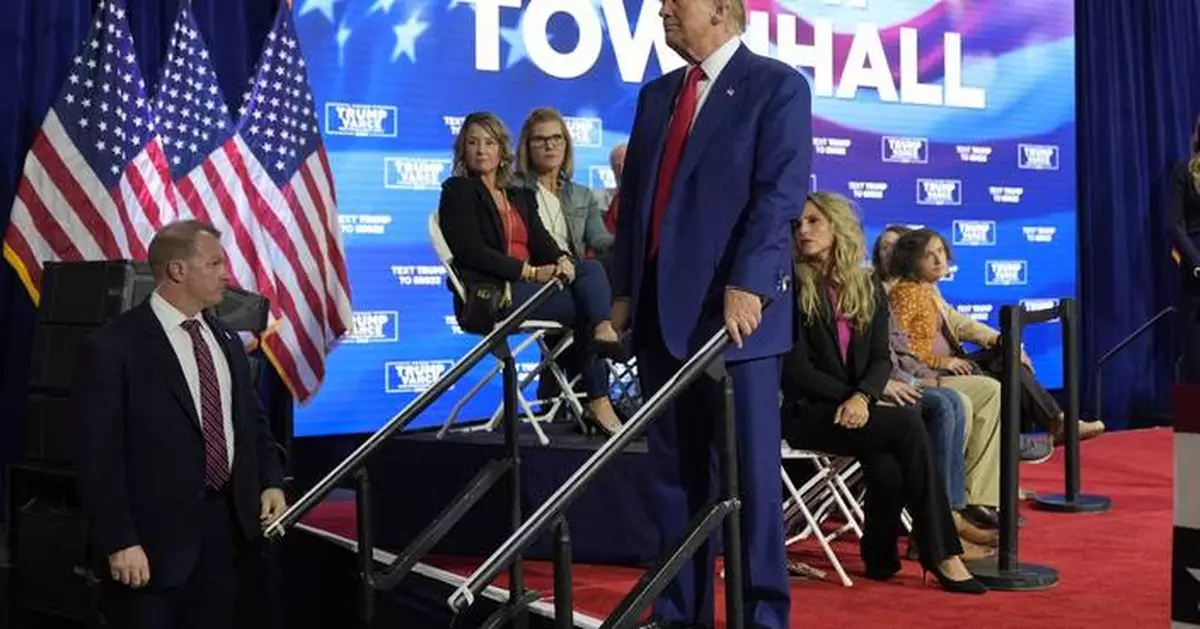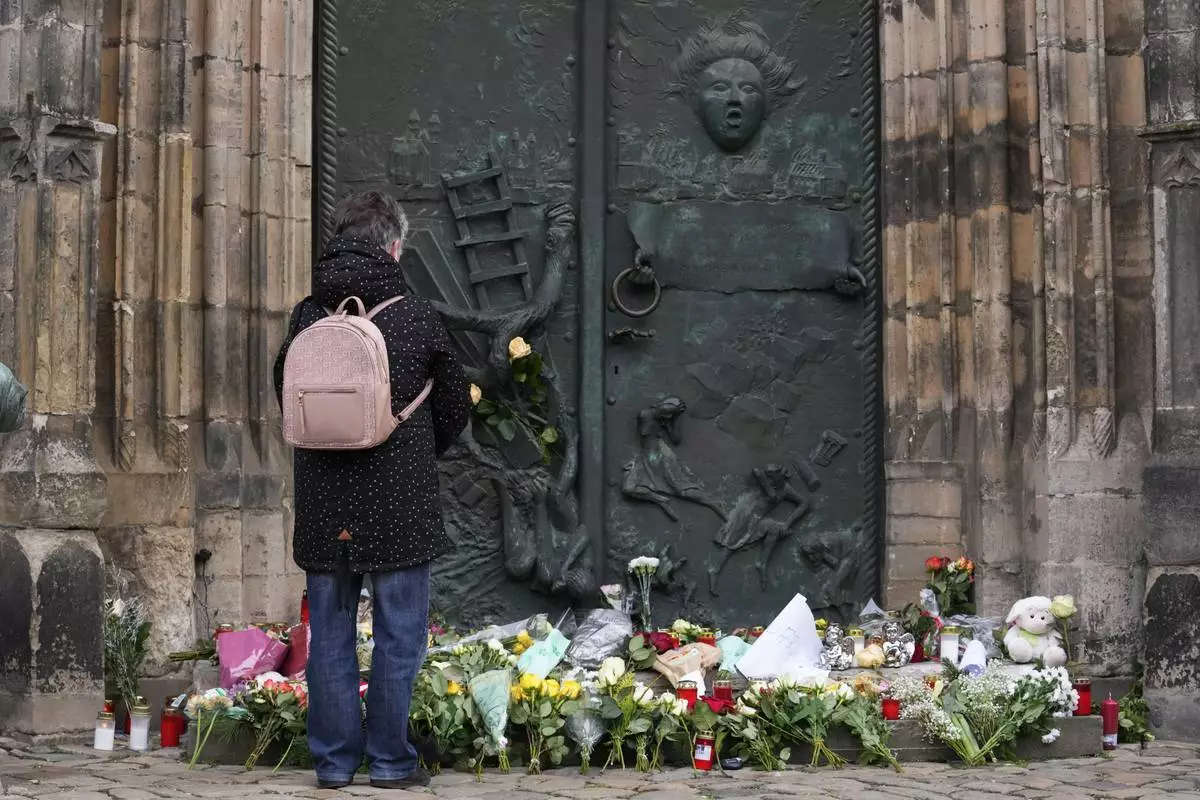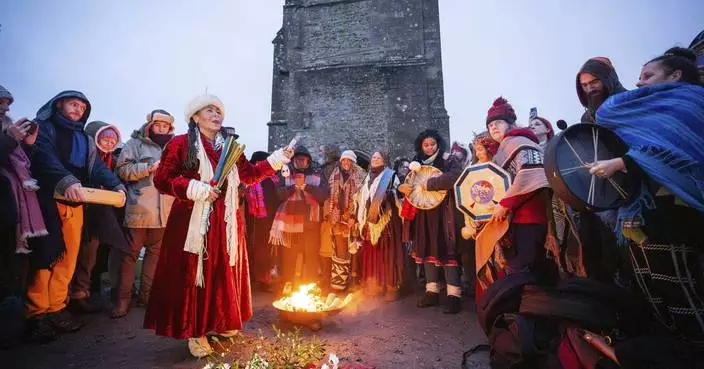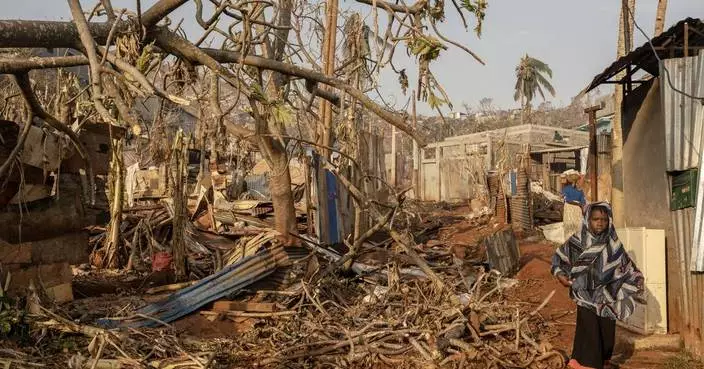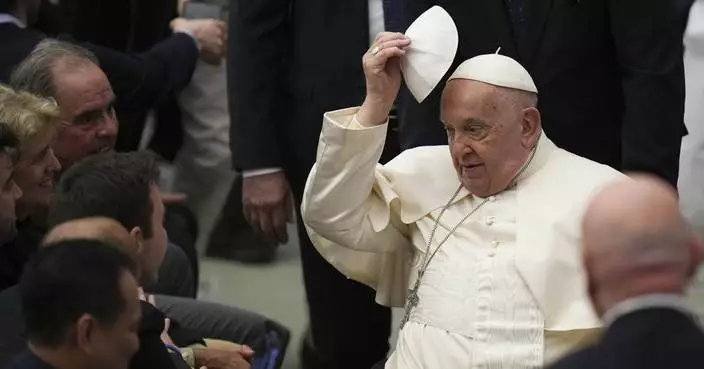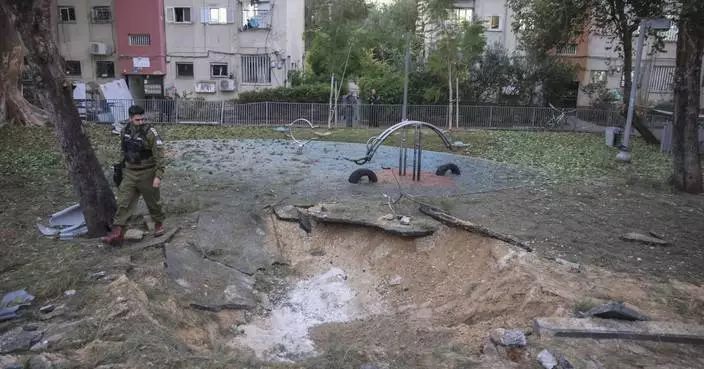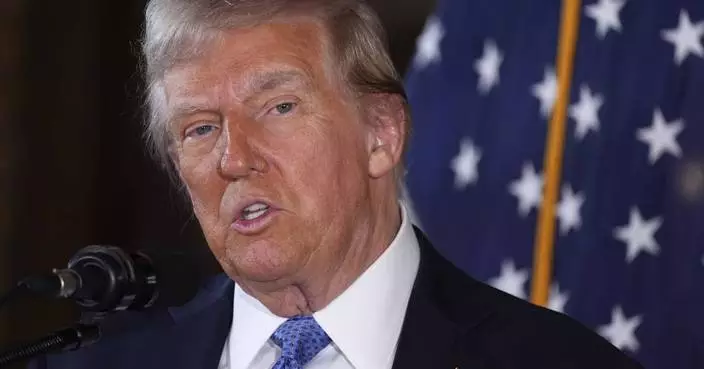OAKS, Pa. (AP) — Donald Trump 's town hall in the Philadelphia suburbs turned into an impromptu concert Monday after the former president was twice interrupted by medical emergencies in the room.
The Republican presidential nominee paused during a question-and-answer session as a doctor in the room attended to the first person to have a medical issue. After a second emergency halted the discusion moderated by South Dakota Gov. Kristi Noem, Trump stopped taking questions. He and Noem mentioned it was hot in the venue, and Trump asked about air conditioning.
“They probably can't afford it, sir, in this economy,” Noem quipped.
During the first interruption, Trump requested “Ave Maria” be played and was answered with an instrumental version of the song. During the second incident, he said he meant Italian opera singer Luciano Pavarotti’s version of the song. It was promptly tuned up.
Once Noem announced the second person was up and moving, Trump spoke for a few more minutes before calling for music to be played, as many in the crowd lingered, unsure whether he was done speaking.
“Those two people who went down are patriots,” Trump said after the music. “We love them. And because of them, we ended up with some great music, right?”
Trump suggested they could wrap up the evening with the audience in their seats, enjoying some musical selections rather than hearing him answer more questions.
He called for the Village People’s “YMCA" and it blasted through the loudspeakers, the usual signal that Trump is done speaking and is ready to leave. But he remained onstage.
More music, more dancing.
“Nobody’s leaving,” Trump said. “What’s going on?”
More music played — and for roughly 40 minutes, it didn't stop.
Trump bopped and shimmied onstage to an eclectic playlist of songs that included Sinead O’Connor’s “Nothing Compares 2 U," Rufus Wainwright’s cover of “Hallelujah" and Guns N’ Roses’ “November Rain.”
Many of his supporters made their way to the exits, but some stayed through the end. The scene was reminiscent of Trump’s winters at Mar-a-Lago, his South Florida estate, where he likes to play DJ and hold court with the wealthy members of his private club.
Finally, Trump left the stage as “Memory” from the musical “Cats” played.
Karoline Leavitt, Trump's national press secretary, published on the social media site X a photo of Trump from the side of the stage. “DJ TRUMP!” she wrote.
Trump spokesperson Steven Cheung wrote on X that “something very special is happening in Pennsylvania” as the scene unfolded, adding Trump “is unlike any politician in history, and it's great.”
Cooper reported from Phoenix.

Republican presidential nominee former President Donald Trump arrives at a campaign town hall at the Greater Philadelphia Expo Center & Fairgrounds, Monday, Oct. 14, 2024, in Oaks, Pa. (AP Photo/Alex Brandon)

Republican presidential nominee former President Donald Trump reads a note that Justin Caporale brought onto the stage at a campaign town hall at the Greater Philadelphia Expo Center & Fairgrounds, Monday, Oct. 14, 2024, in Oaks, Pa. (AP Photo/Alex Brandon)

A man raises his fist as he taken away on a stretcher as Republican presidential nominee former President Donald Trump speaks at a campaign town hall at the Greater Philadelphia Expo Center & Fairgrounds, Monday, Oct. 14, 2024, in Oaks, Pa. (AP Photo/Alex Brandon)

Republican presidential nominee former President Donald Trump checks on a person having a medical emergency at a campaign town hall at the Greater Philadelphia Expo Center & Fairgrounds, Monday, Oct. 14, 2024, in Oaks, Pa. (AP Photo/Alex Brandon)


